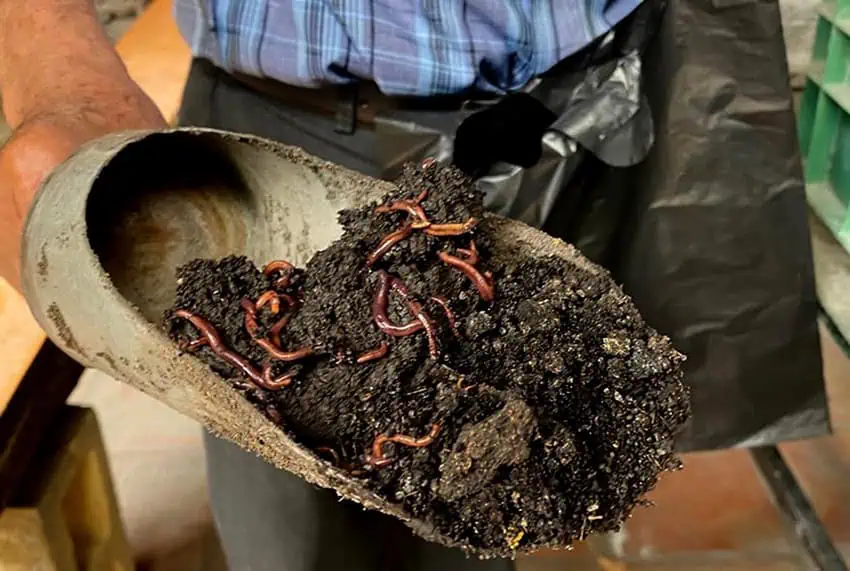Disclaimer: Y’all know that I’m not a doctor, right? Be sure to talk to an actual one before taking any action.
Even if you’ve lived here for a while, there’s something you might not know: lots and lots of Mexicans “de-worm” themselves periodically.

That’s right. Plenty of people just kind of expect to get parasites in their gastrointestinal systems. But that’s not to say that they take it sitting down! Many families, once or twice a year and together, take a one or two-dose “deworming” chewable to get rid of them, and then just move on with their normal lives.
When I first found out about this, I’ll admit I found it…odd. “Say what you will about the American food system,” I’d joke, “but we don’t all take de-worming as a matter of course.”
From my research, I’ve found that Chileans, incidentally, feel the same way.
Anyway.
If Moctezuma’s Revenge has ever fallen upon you here in Mexico, it’s very possible that a “de-worming” pill was part of what the doctor ordered for your treatment. Why? Because intestinal parasites — especially if you’re accustomed to eating “on the street” — are prolific. That’s what the companies that sell de-worming pills say, anyway.
Then again, that’s what the IMSS says, too. It’s always struck me as strange, though, that a practice so prevalent in one country can be nearly unheard of in its neighbor. So what gives?
Much of the reason that de-worming is encouraged here is because of a fairly large variety of food and water sanitation. You know how everyone says, “Don’t drink the water” in Mexico? Well, there’s a reason for that. While water sanitation plants in Mexico do their best, the pipes that they flow through can’t necessarily be trusted, for example:
Everyone seems to have different levels of comfort with the risks they take. I don’t drink water straight from the tap myself, but I do drink it boiled in tea or coffee. I also brush my teeth with it. So far, so good!
For most of us reading this, it’s a matter of choice. But for the millions of Mexicans who don’t have access to properly sanitized water, the risk is higher.
There’s also the question of keeping one’s food free of contamination. Some of this is simply cultural; you cook food, and then you leave it out during the day because you’re going to have some more later. Eggs don’t get stored in the refrigerator, and often mayo doesn’t either — even after opening.
Contrast this to my childhood, where almost any food that sat out on the counter for more than an hour had to be thrown away, deemed by my mother as officially no longer safe. I’m guessing others had similar experiences. We also tend to eat much more processed food in the US, which means more preservatives, which are what they sound like — they “preserve” the food.
But here in Mexico, we’re closer to nature. And when you’re closer to nature, you’re, well, closer to nature. And parasites are part of nature. At least in my case, that reminds me to not get too romantic about it all. “Nature” is not all frolicking through the forest as sunlight dapples on the soft mossy ground, after all. It’s also ticks and mosquitos. And parasites.

As I’ve written before, Mexicans are perfectly okay with getting away from nature. Take their cleaning practices: nothing is truly clean if it hasn’t been doused in bleach, and the fewer “uncontrolled weeds” you have on your property, the better. I’m not saying Mexicans hate plants. They just want to be able to control them to a certain degree if they can afford to.
In a way, Mexicans “de-worm” everything they can, whenever they can. Do you know anyone in your home country who washes their bathroom and kitchen with bleach at least every two days? It’s all about the cleanliness around here.
I myself have never been known as the queen of hygiene. I’ve never bathed more than twice a week (except after a visit to the gym). I grew up in a home that was pretty much always not just messy, but dirty; any self-respecting Mexican would have fainted to see it. Nowadays, my home is always neat and orderly (natural inclination or trauma response? We may never know.) But truly clean and disinfected, a la mexicana? That only happens once a week, when the lady who helps me with the house comes.
She may not worry about the food sitting out after breakfast, but boy does she make sure the floor is spotless.
In the end, I think de-worming is an extension of this tendency to keep the “bad” parts of nature at bay. Their presence is inevitable, but that doesn’t mean we should let them defeat us! Especially for people who live in more rural areas. Or those too poor to have access to clean water or be choosy about how clean the food they ultimately consume is kept — I’ve known even city dwellers without refrigerators — those little de-worming pills can be a literal life-saver. You can’t stop eating or drinking water, but you can fight against any unwelcome guest that makes it in with them!
As for myself, it’s not often that I rush out to the pharmacy for one. But I could if I wanted to — they’re available without a prescription. Still, I wouldn’t recommend diving in without input from a doctor and perhaps a laboratory. Why take something you don’t need, after all?
Medical treatment can be, in the end, just like anything else: there are cultural components. Just ask the doctor who offered to have someone rub an egg on me to draw out an infection.
In the meantime, keep clean and when in doubt, ask a doctor!
Sarah DeVries is a writer and translator based in Xalapa, Veracruz. She can be reached through her website, sarahedevries.substack.com.
